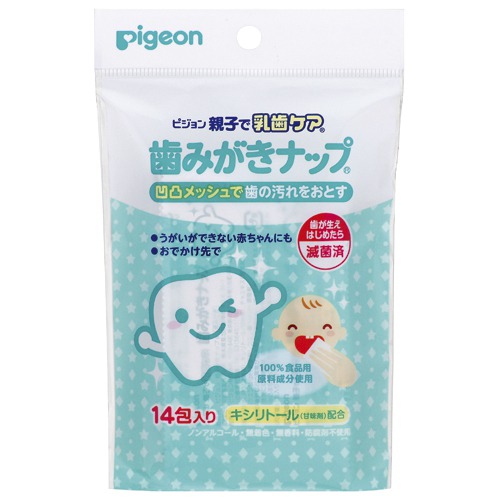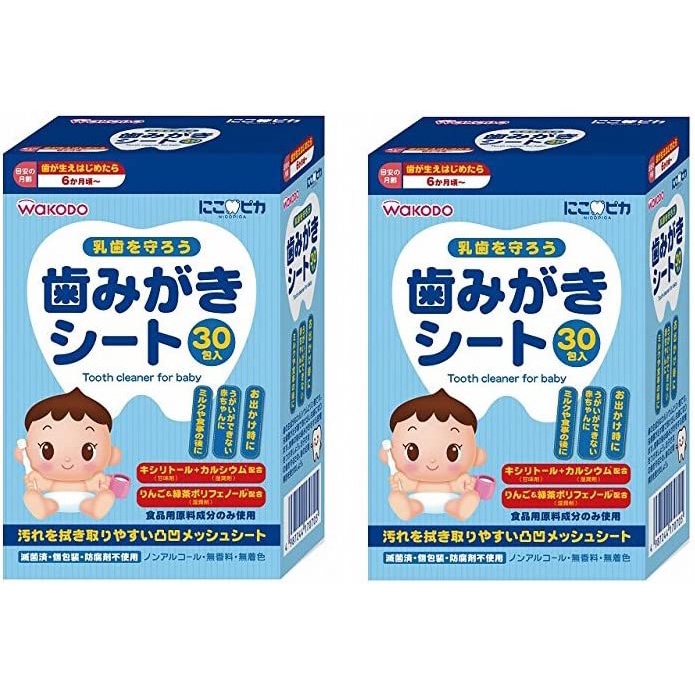What Are Infant Tooth Wipes? Gentle Care Solution

The world of infant oral care can be overwhelming, especially for new parents. With so many products available, it’s essential to understand what each one does and how it can benefit your baby’s health. One such product that has gained popularity in recent years is infant tooth wipes. But what exactly are they, and how do they contribute to gentle care for your little one’s teeth and gums?
Infant tooth wipes are soft, gentle cloths designed for cleaning an infant’s teeth and gums. They are typically made of a soft, breathable material that is safe for your baby’s delicate mouth. These wipes are usually infused with a mild, non-foaming cleanser that helps remove bacteria, milk residue, and other substances that can accumulate on the teeth and gums. The goal of using infant tooth wipes is to introduce good oral hygiene habits from an early age, reducing the risk of tooth decay, gum disease, and other oral health issues.
One of the primary benefits of infant tooth wipes is their ease of use. They are an excellent alternative to traditional toothbrushes, especially for babies who are still getting used to the sensation of having their teeth brushed. The soft texture and gentle formula of these wipes make them perfect for wiping down your baby’s teeth and gums, even when they’re as young as a few months old. This early introduction to oral care can help your baby become more comfortable with the idea of having their teeth cleaned, making the transition to a toothbrush much smoother.
When choosing infant tooth wipes, it’s crucial to look for products that are specifically designed for your baby’s age group. Some wipes may be too harsh or contain ingredients that aren’t suitable for very young infants. Always opt for wipes that are labeled as “gentle” or “suitable for infants” and contain natural ingredients that are safe for your baby’s sensitive skin and mouth.
Another significant advantage of infant tooth wipes is their portability. They are perfect for on-the-go cleaning, allowing you to quickly wipe down your baby’s teeth and gums after feeding or when you’re out and about. This convenience factor makes them an excellent addition to your baby’s oral care routine, ensuring that their teeth and gums stay clean and healthy, even when you’re not at home.
In addition to their practicality, infant tooth wipes can also play a role in reducing the risk of oral health issues. By removing bacteria and other substances from the teeth and gums, these wipes can help prevent the buildup of plaque and tartar, which can lead to tooth decay and gum disease. This is especially important for infants, as their teeth are still developing, and good oral hygiene habits can set the stage for a lifetime of healthy smiles.
To get the most out of infant tooth wipes, it’s essential to use them correctly. Gently wipe down your baby’s teeth and gums, making sure to cover all surfaces. You can use these wipes after feedings, before bedtime, or at any other time when you want to give your baby’s mouth a quick clean. Be sure to follow the manufacturer’s instructions for use and to always supervise your baby during cleaning to ensure their safety.
As your baby grows and develops, it’s essential to transition to a toothbrush and toothpaste. However, infant tooth wipes can still be a valuable tool in your baby’s oral care routine. They can be used to clean hard-to-reach areas, such as the back of the mouth, or to wipe down your baby’s teeth and gums after a meal or snack.
In conclusion, infant tooth wipes are a gentle and effective way to care for your baby’s teeth and gums. They offer a convenient, portable, and easy-to-use solution for introducing good oral hygiene habits from an early age. By choosing the right product and using it correctly, you can help set your baby up for a lifetime of healthy smiles and reduce the risk of oral health issues.
When it comes to infant tooth wipes, it's essential to prioritize your baby's comfort and safety. Look for products that are specifically designed for infants and contain natural ingredients that are gentle on their skin and mouth. Always follow the manufacturer's instructions for use and supervise your baby during cleaning to ensure their safety.
Common Ingredients in Infant Tooth Wipes
Infant tooth wipes can contain a variety of ingredients, depending on the manufacturer and the specific product. Some common ingredients include:
- Mild cleansers, such as glycerin or polysorbate
- Natural ingredients, such as aloe vera or chamomile
- Moisturizers, such as vitamin E or coconut oil
- Flavorings, such as fruit or mint extracts
When choosing infant tooth wipes, it’s essential to read the ingredient label carefully and look for products that contain natural, gentle ingredients that are safe for your baby’s sensitive skin and mouth.
The Importance of Good Oral Hygiene Habits
Good oral hygiene habits are essential for maintaining your baby’s overall health and well-being. By introducing these habits from an early age, you can help prevent oral health issues, such as tooth decay and gum disease, and set your baby up for a lifetime of healthy smiles.
Some tips for maintaining good oral hygiene habits include:
- Cleaning your baby’s teeth and gums regularly, using a gentle cleanser and a soft cloth or toothbrush
- Avoiding sugary or acidic substances, such as juice or candy
- Encouraging your baby to drink plenty of water and eat a balanced diet
- Scheduling regular dental check-ups and cleanings
By following these tips and using infant tooth wipes as part of your baby’s oral care routine, you can help keep their teeth and gums clean and healthy, and set them up for a lifetime of good oral hygiene habits.
Pros and Cons of Infant Tooth Wipes
| Pros | Cons |
|---|---|
| Gentle and easy to use | May not be as effective as a toothbrush for removing plaque and tartar |
| Portable and convenient | May contain ingredients that are not suitable for all babies |
| Can help introduce good oral hygiene habits from an early age | May be more expensive than traditional toothbrushes and toothpaste |

Frequently Asked Questions
What are infant tooth wipes, and how do they work?
+Infant tooth wipes are soft, gentle cloths designed for cleaning an infant's teeth and gums. They are typically made of a soft, breathable material that is safe for your baby's delicate mouth and are infused with a mild, non-foaming cleanser that helps remove bacteria, milk residue, and other substances that can accumulate on the teeth and gums.
How do I choose the right infant tooth wipes for my baby?
+When choosing infant tooth wipes, look for products that are specifically designed for your baby's age group and contain natural ingredients that are safe for their sensitive skin and mouth. Always read the ingredient label carefully and follow the manufacturer's instructions for use.
Can I use infant tooth wipes on my baby's gums as well as their teeth?
+How often should I use infant tooth wipes on my baby?
+Infant tooth wipes can be used after feedings, before bedtime, or at any other time when you want to give your baby's mouth a quick clean. Always follow the manufacturer's instructions for use and supervise your baby during cleaning to ensure their safety.
Can I use infant tooth wipes in place of a toothbrush and toothpaste?
+While infant tooth wipes can be a valuable tool in your baby's oral care routine, they should not be used as a replacement for a toothbrush and toothpaste. As your baby grows and develops, it's essential to transition to a toothbrush and toothpaste to ensure their teeth and gums receive the best possible care.
In conclusion, infant tooth wipes are a gentle and effective way to care for your baby’s teeth and gums. By choosing the right product, using it correctly, and incorporating it into your baby’s oral care routine, you can help set your baby up for a lifetime of healthy smiles and reduce the risk of oral health issues.


